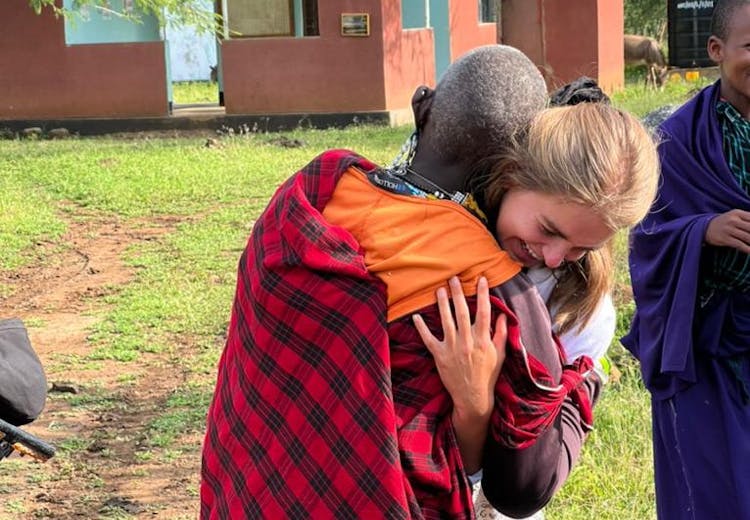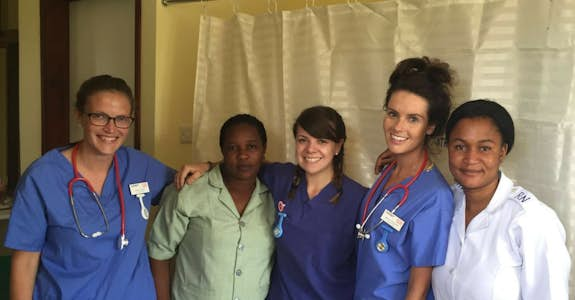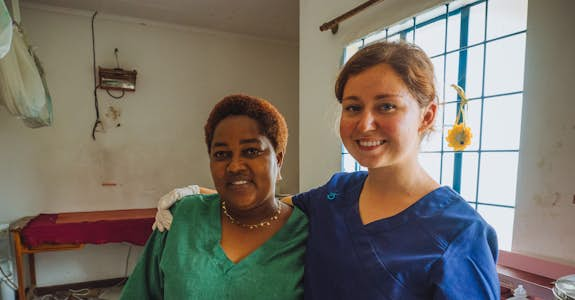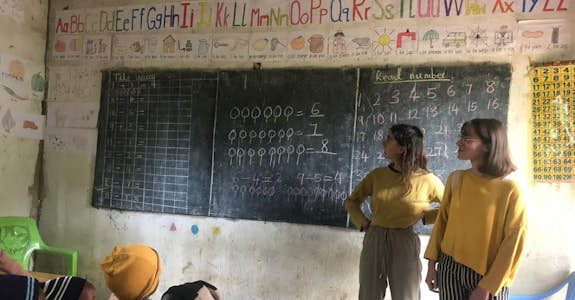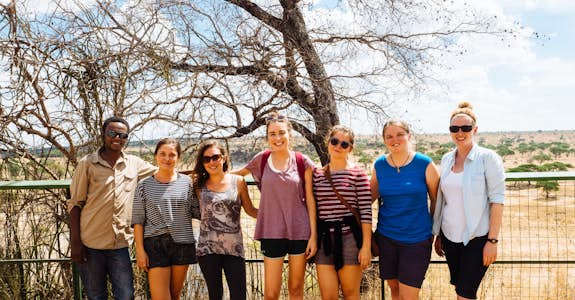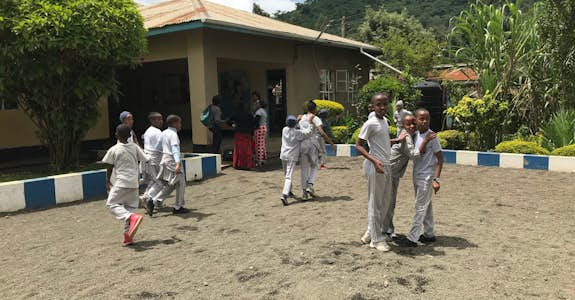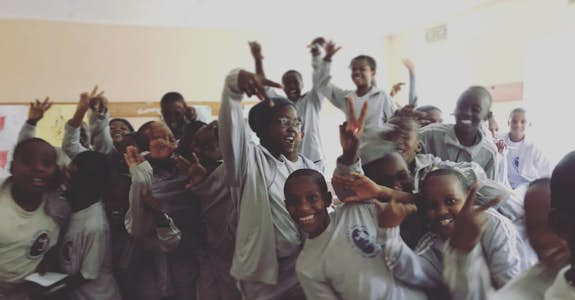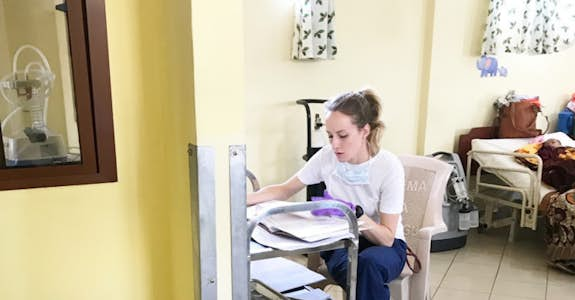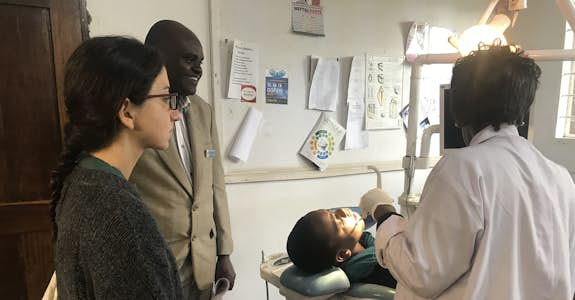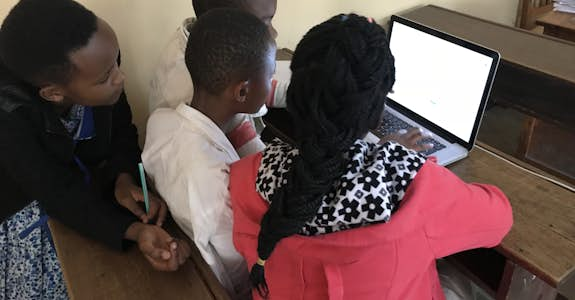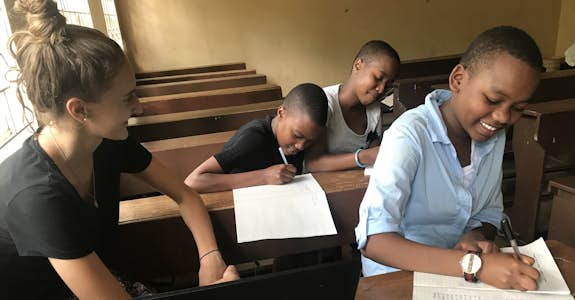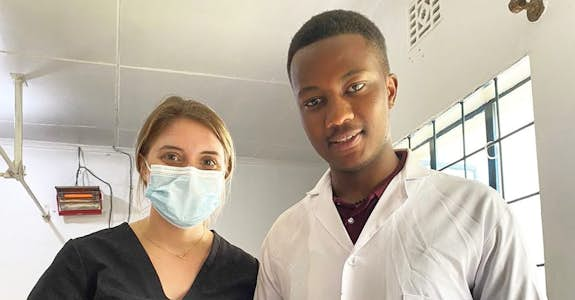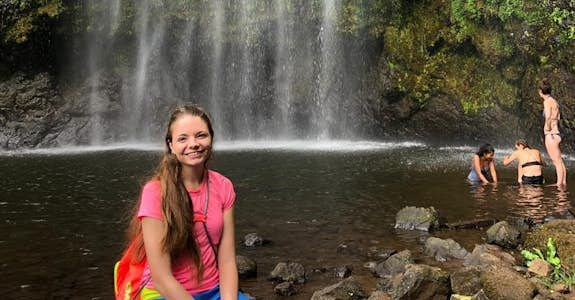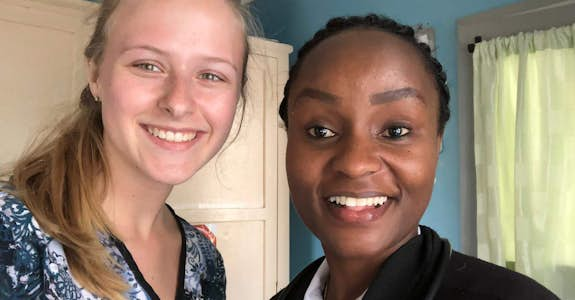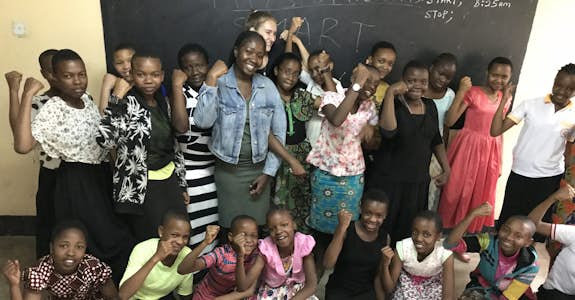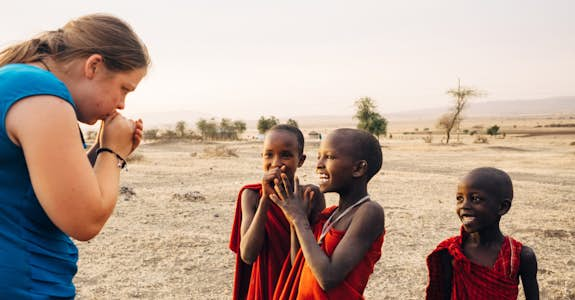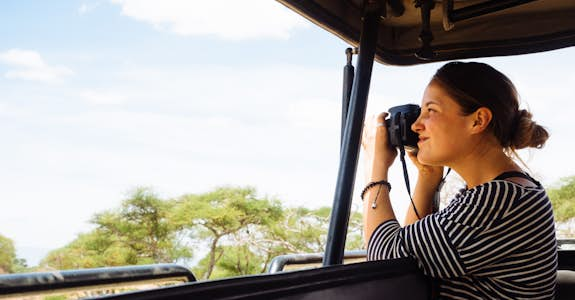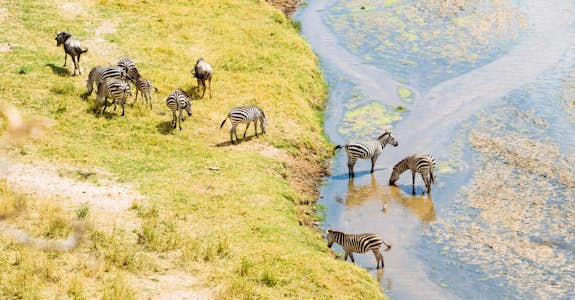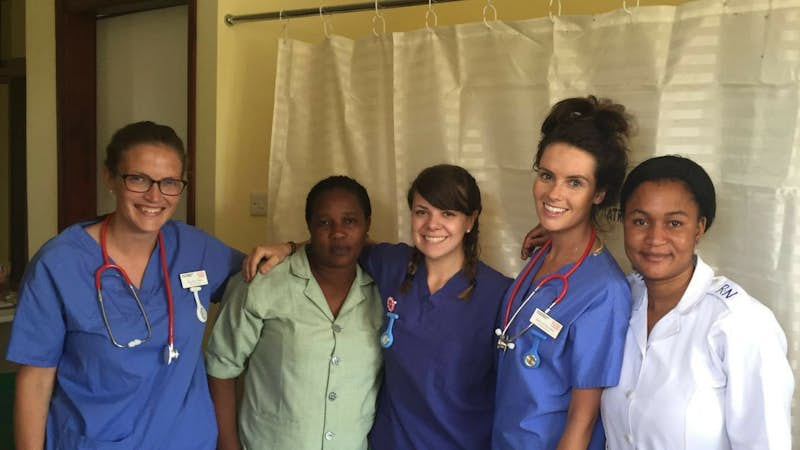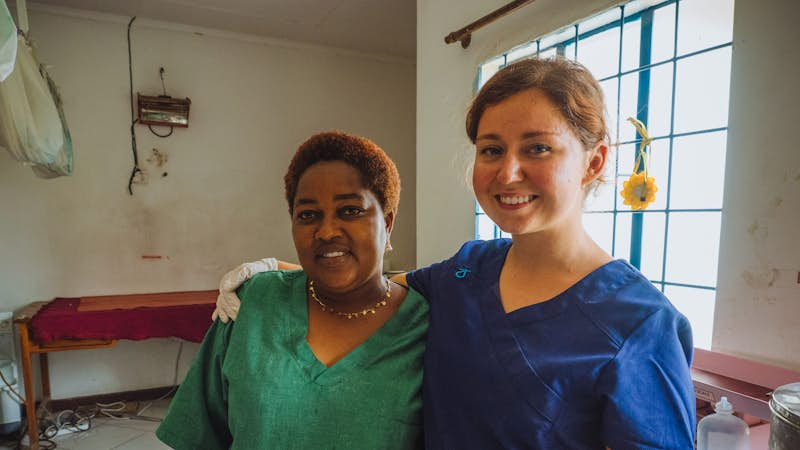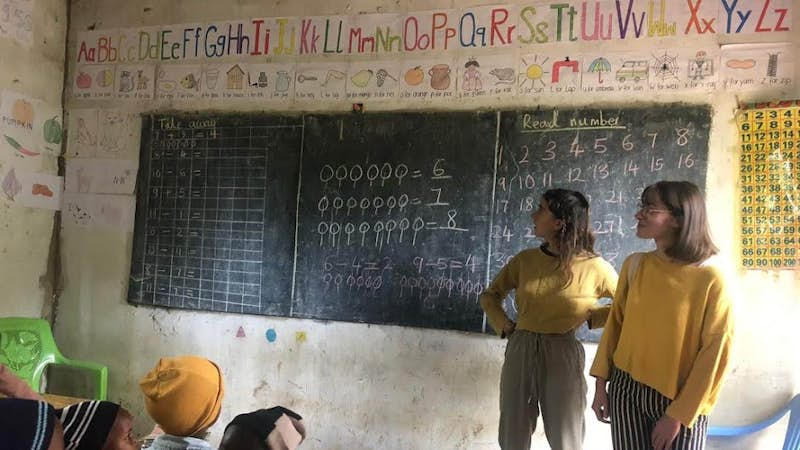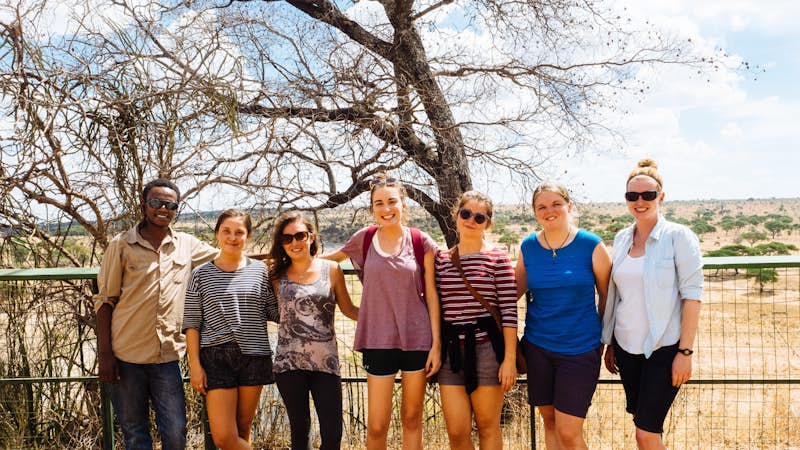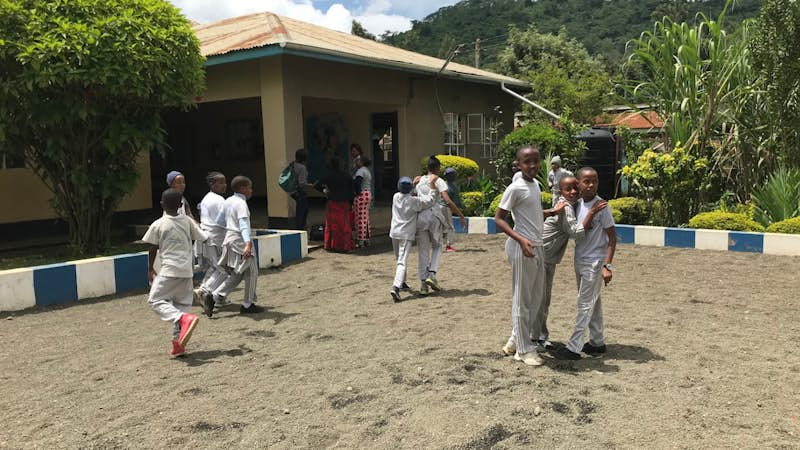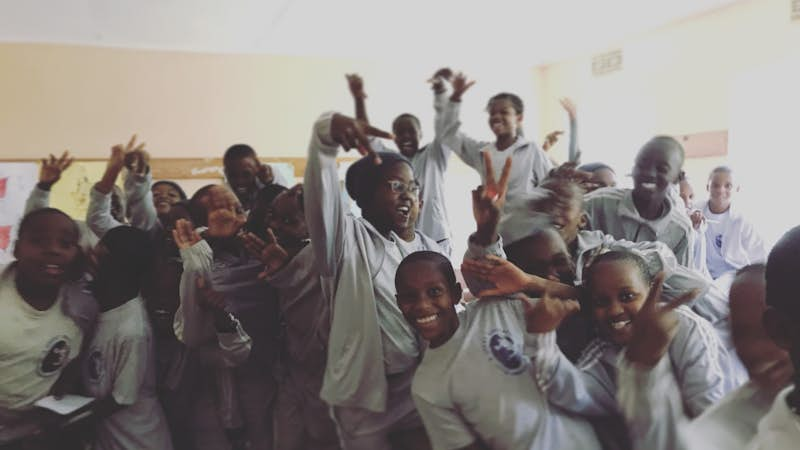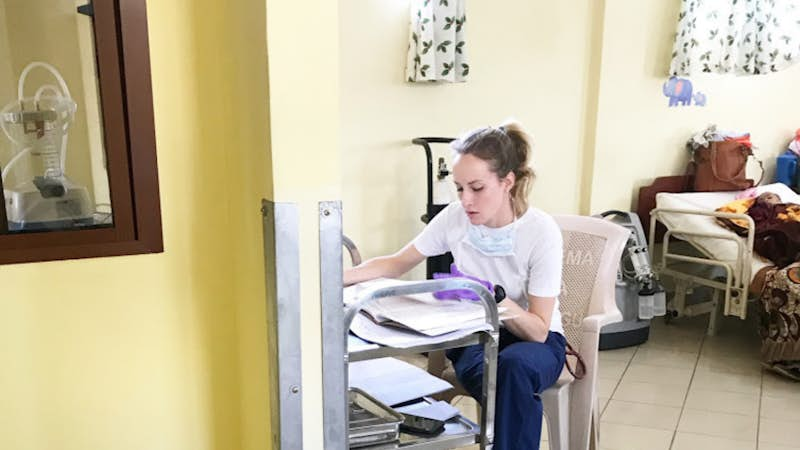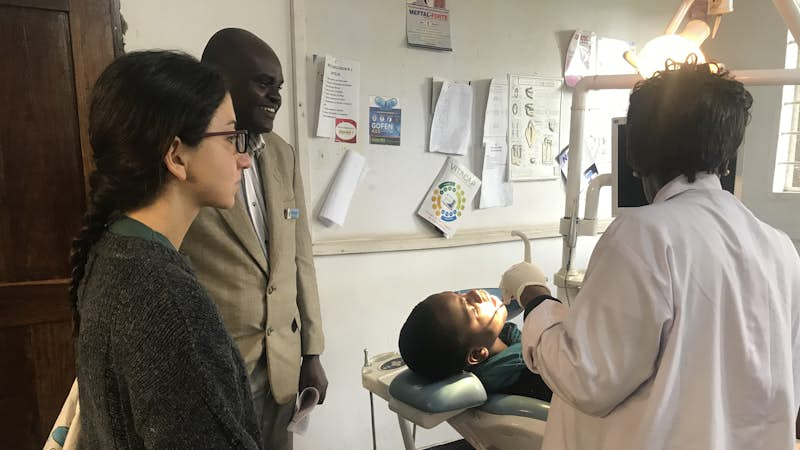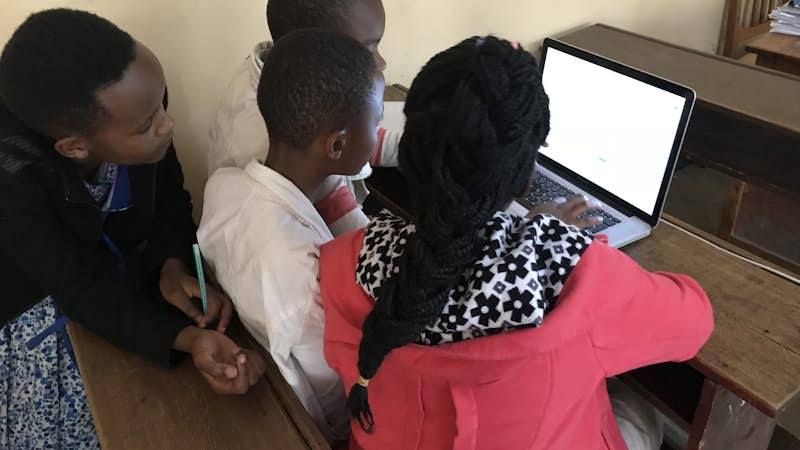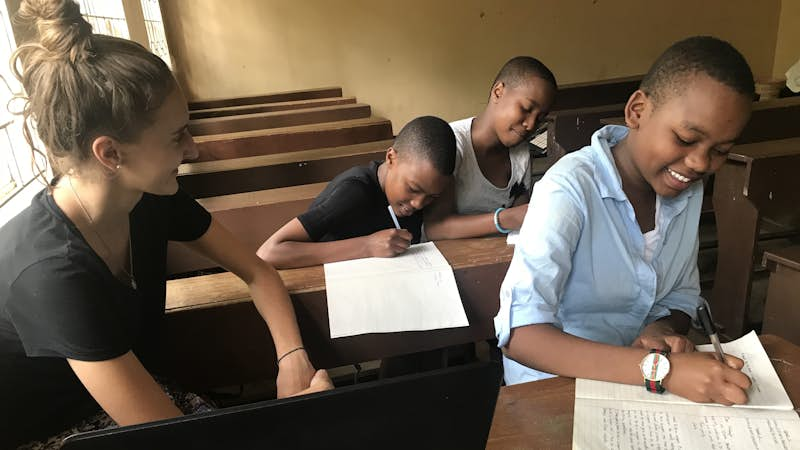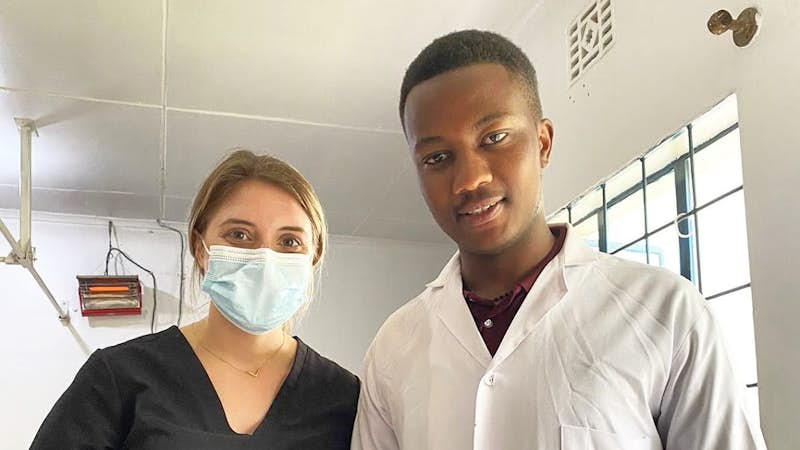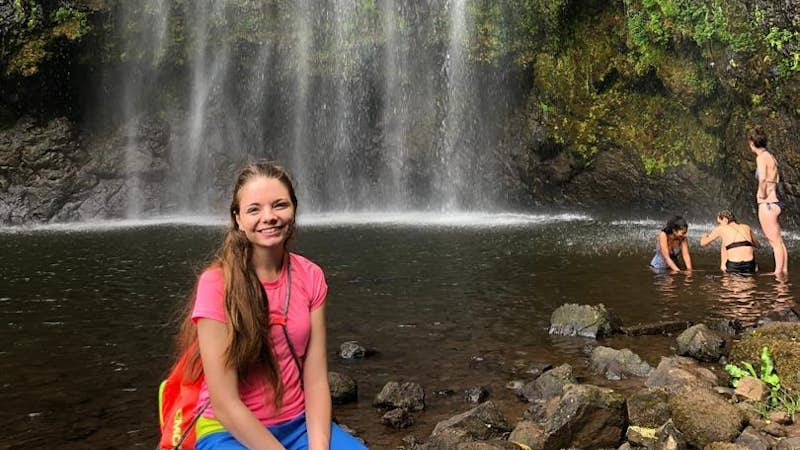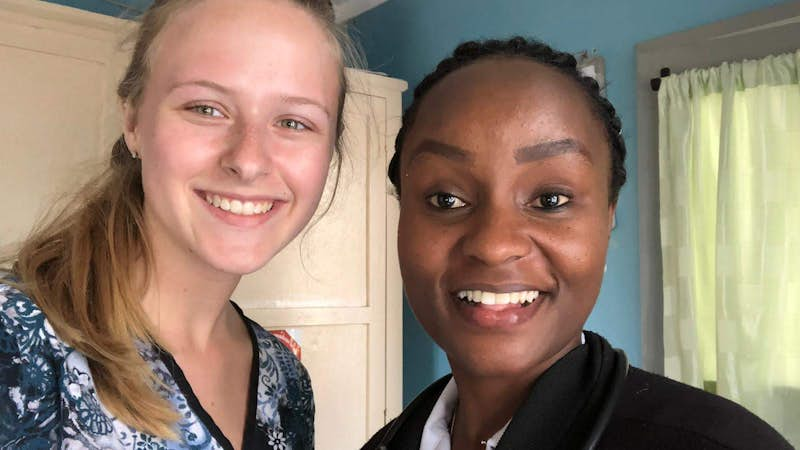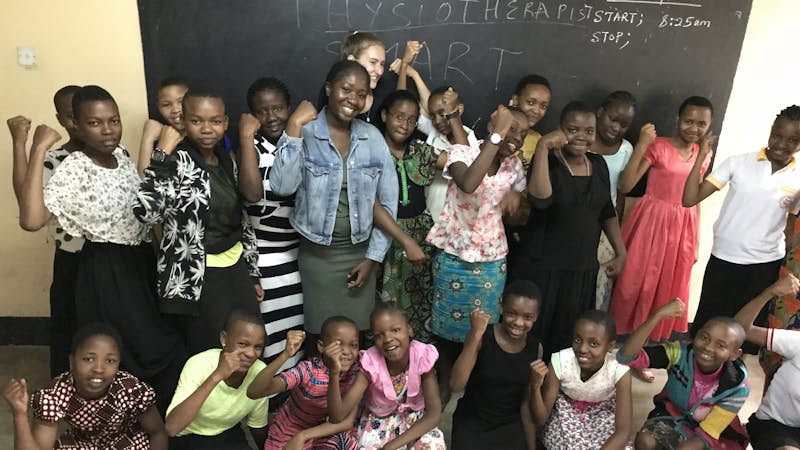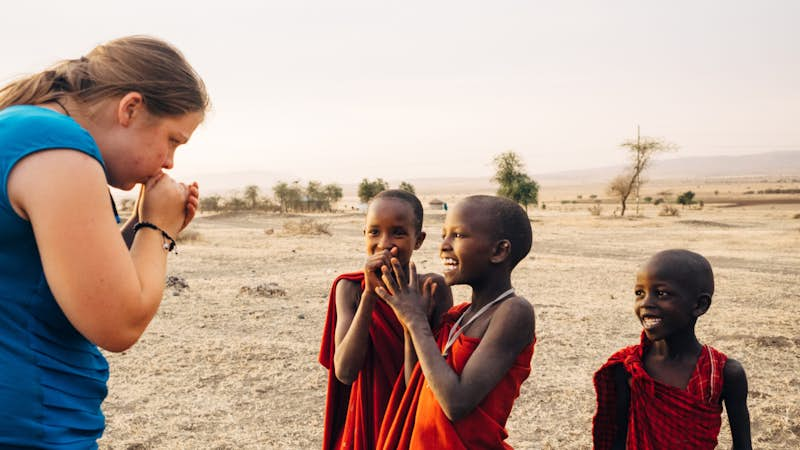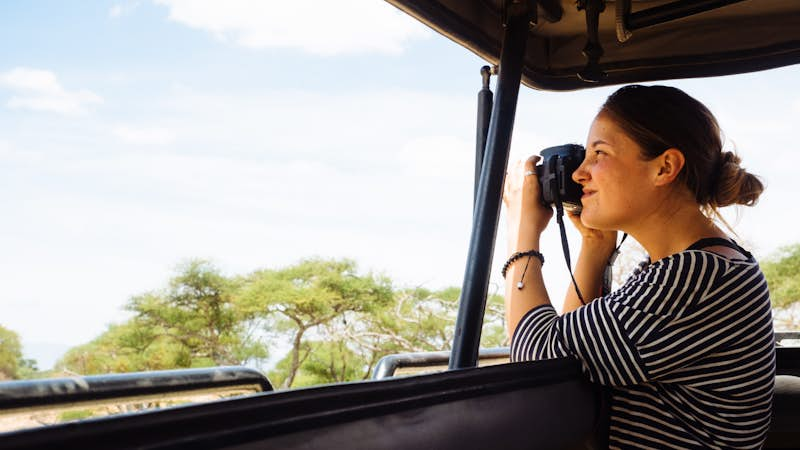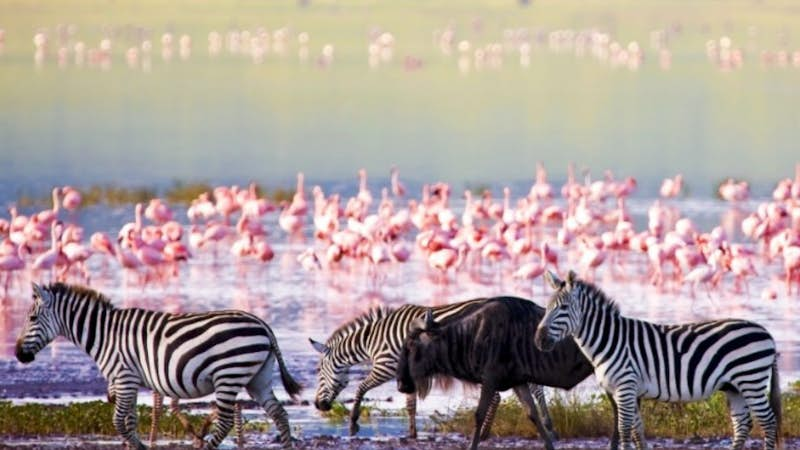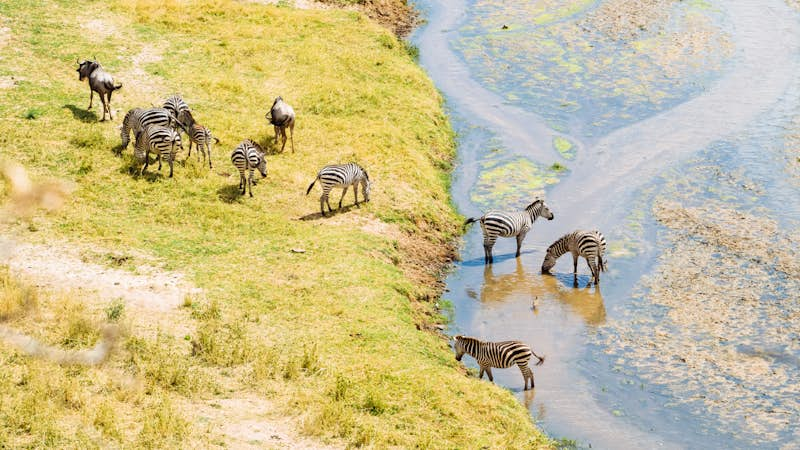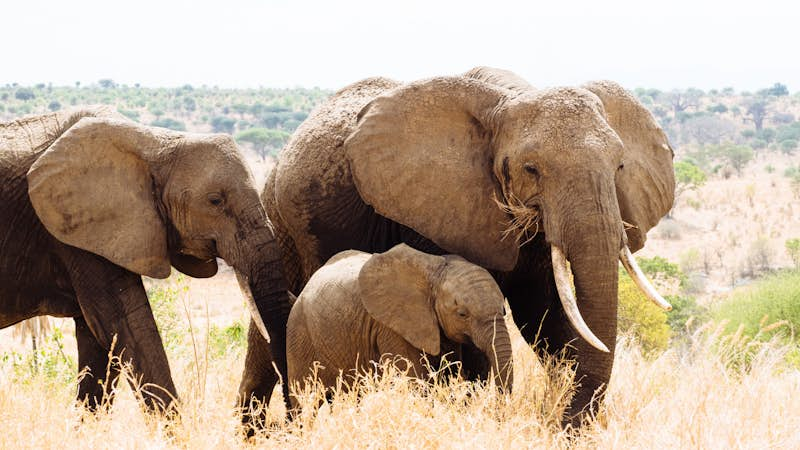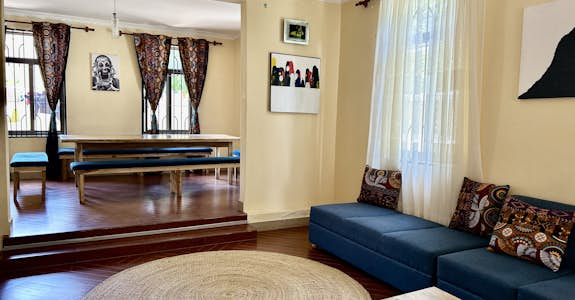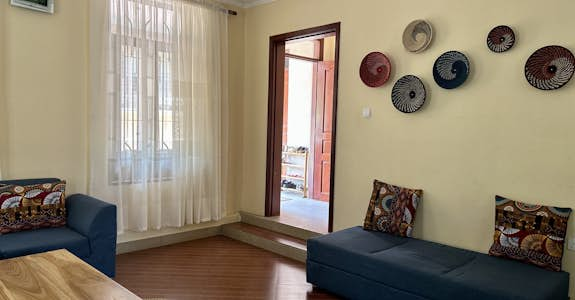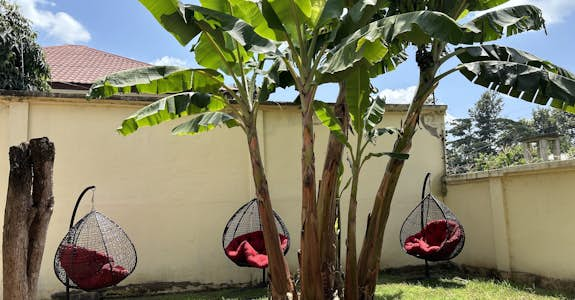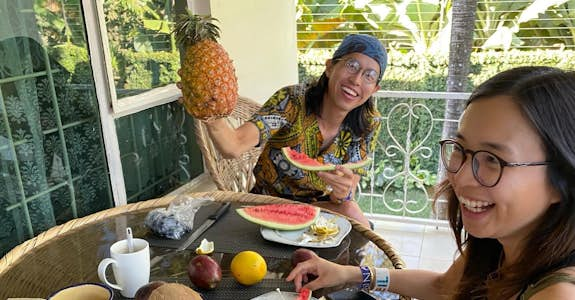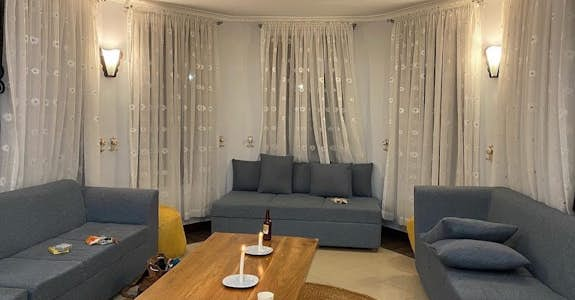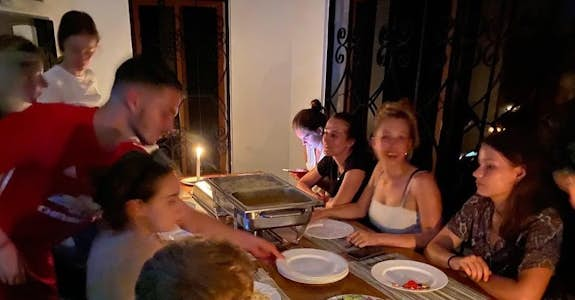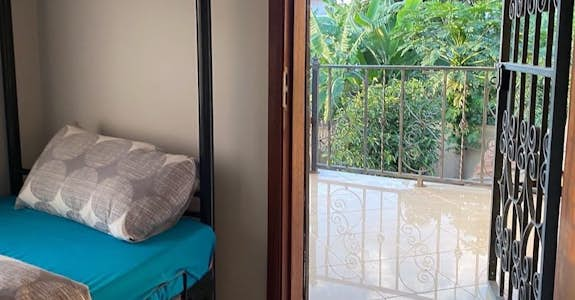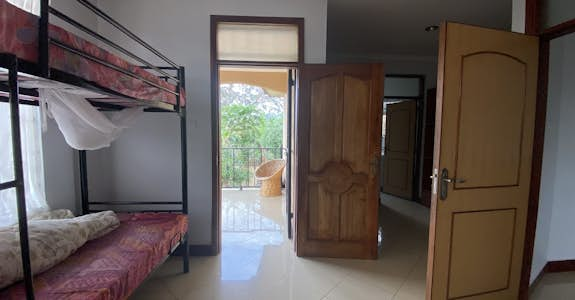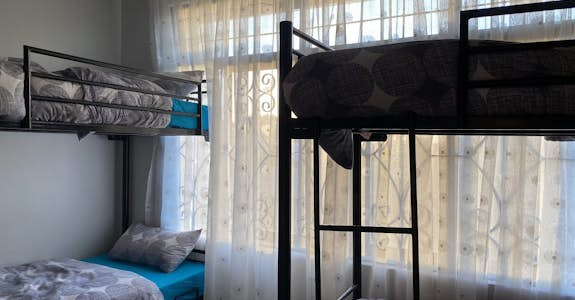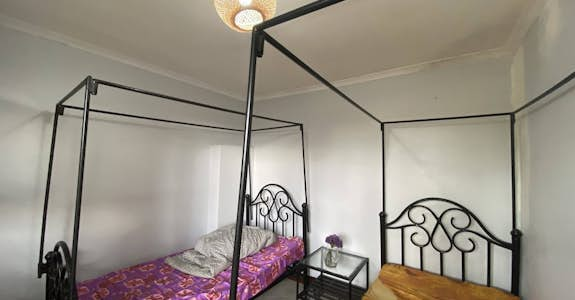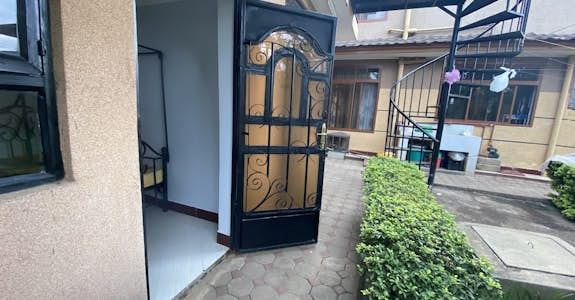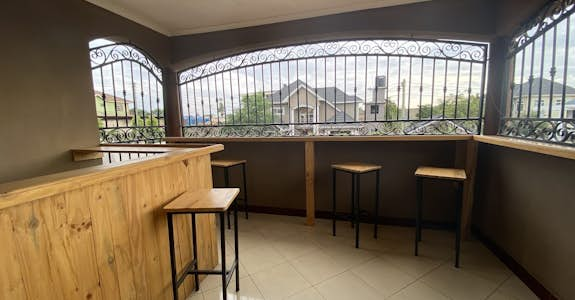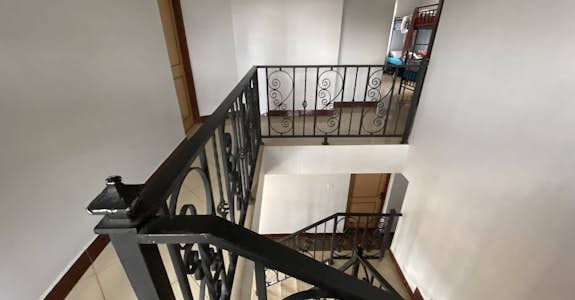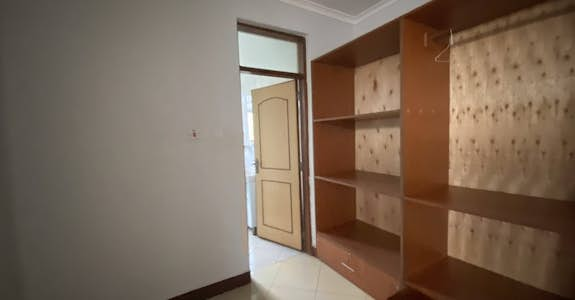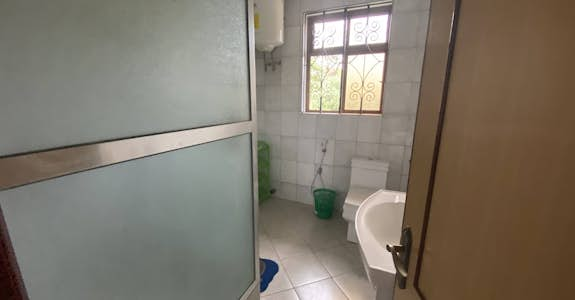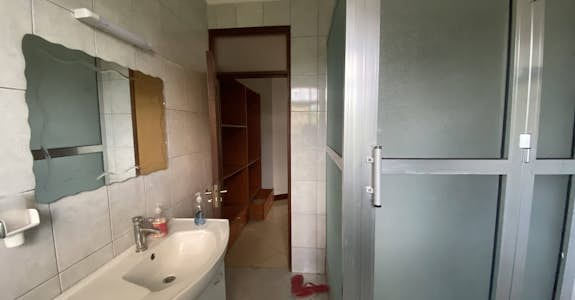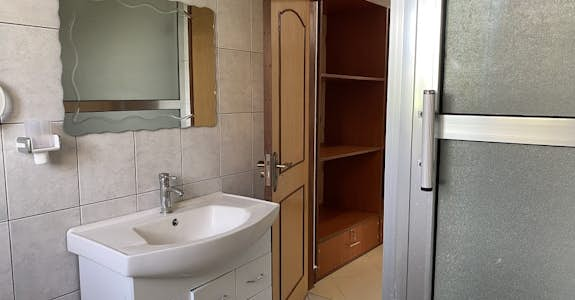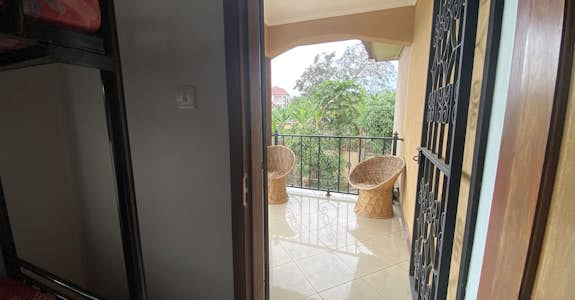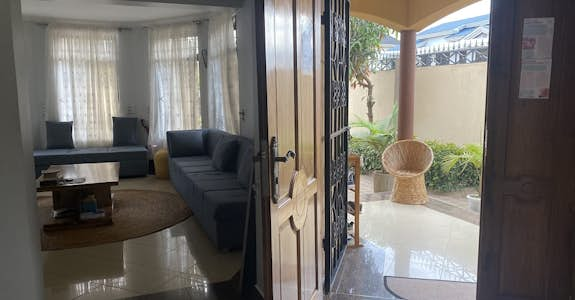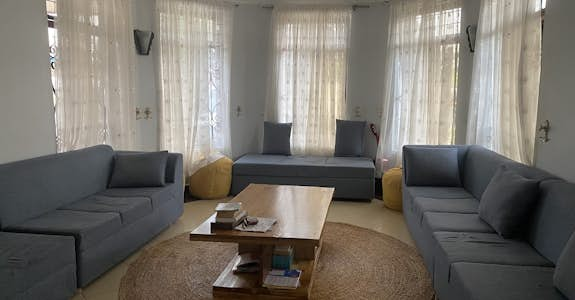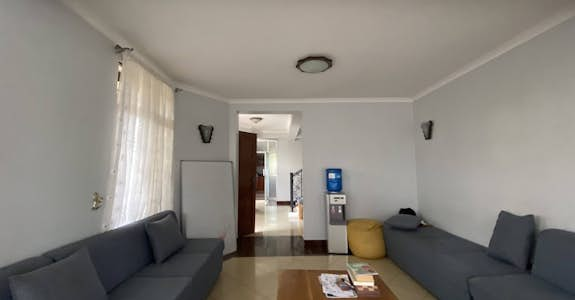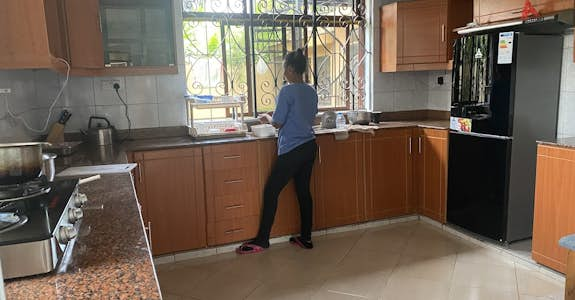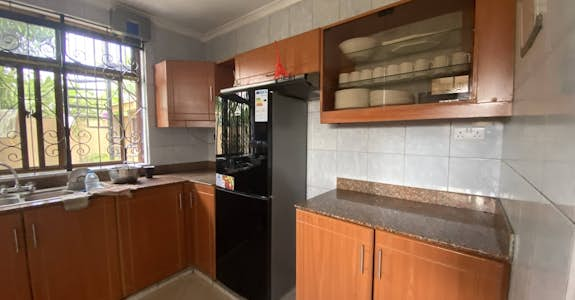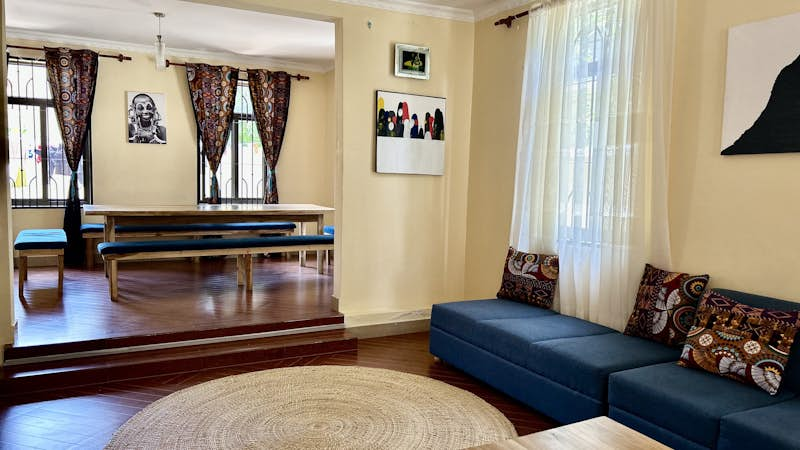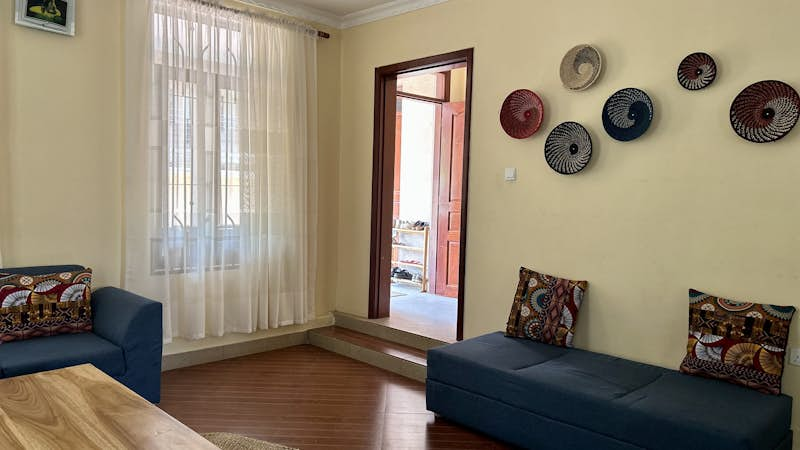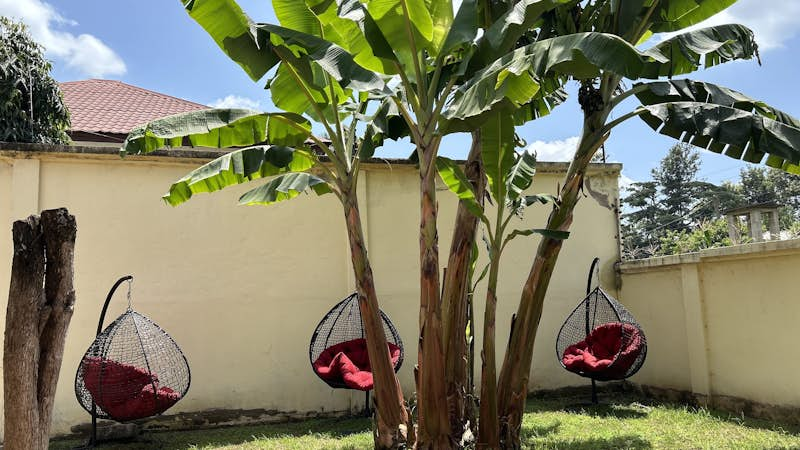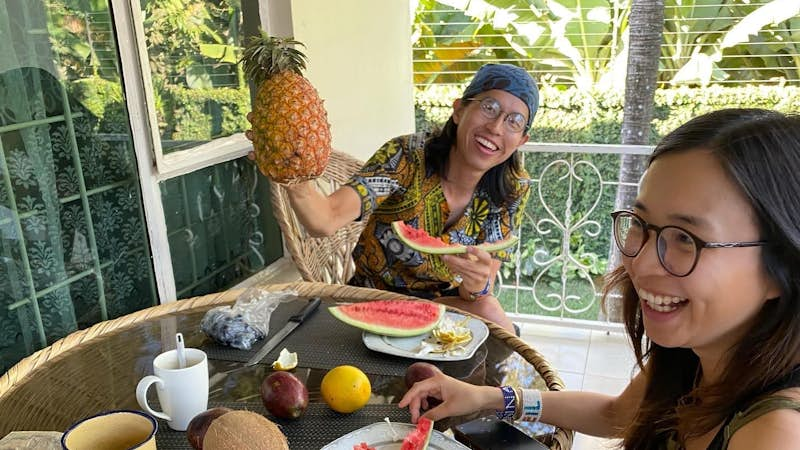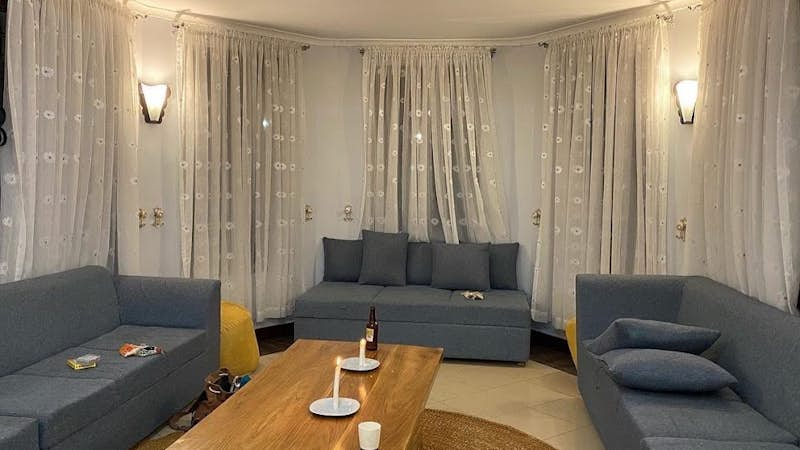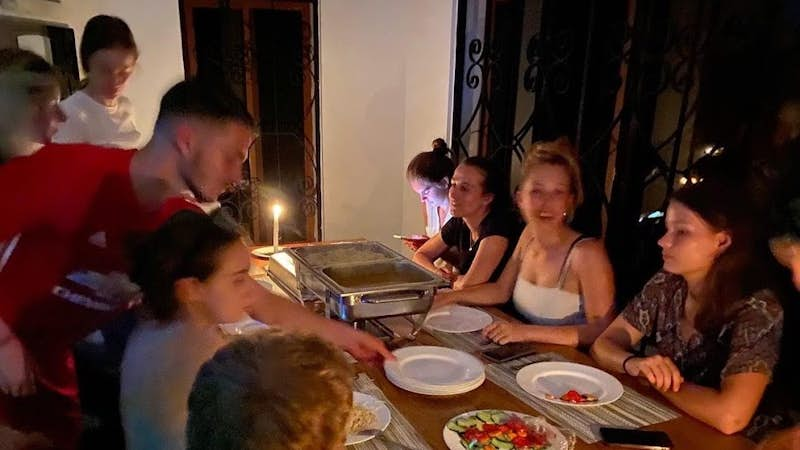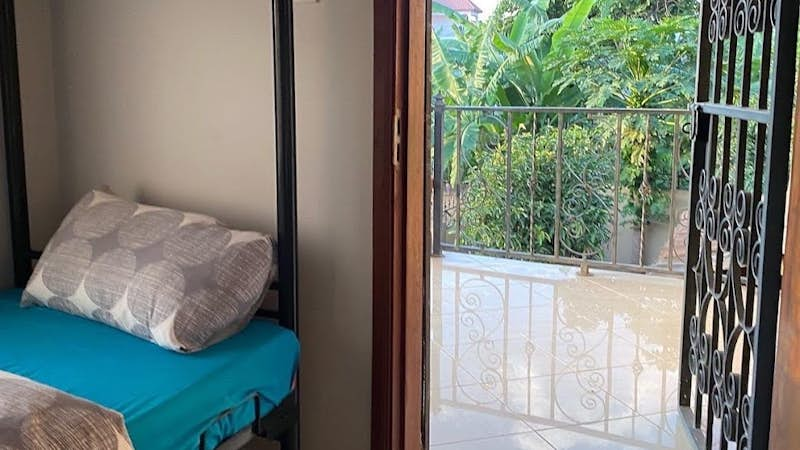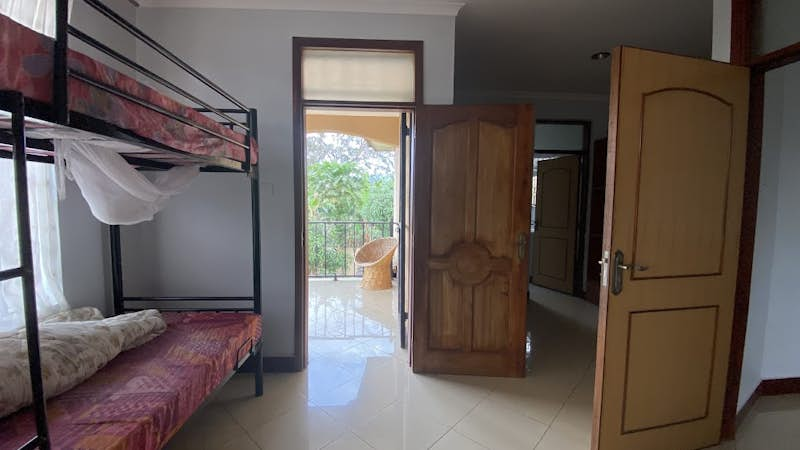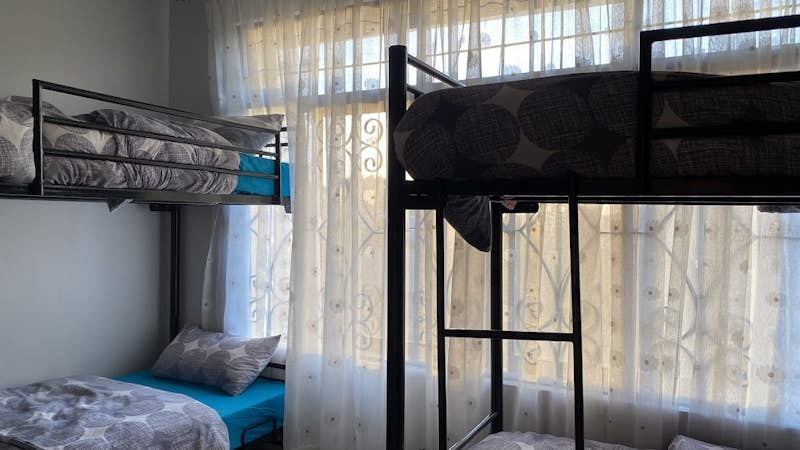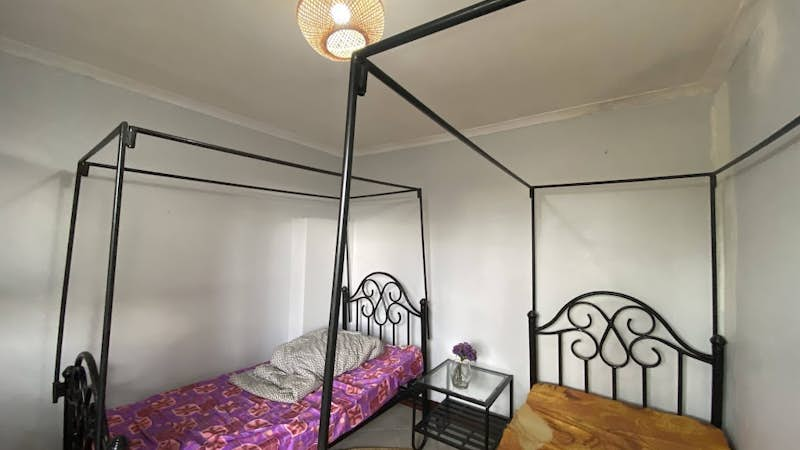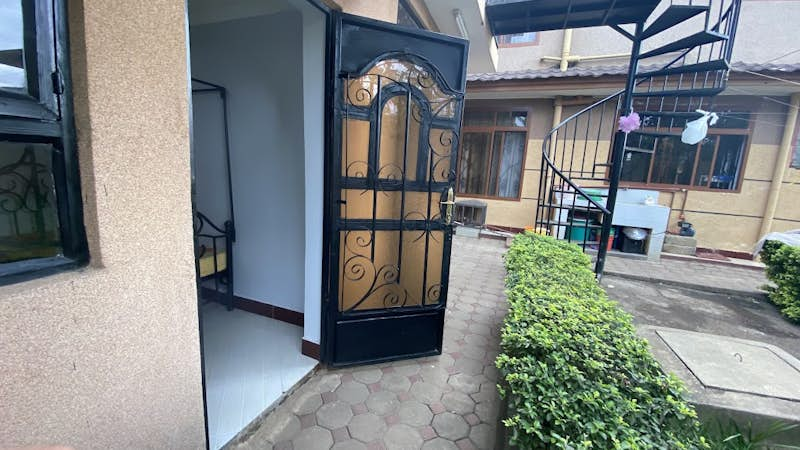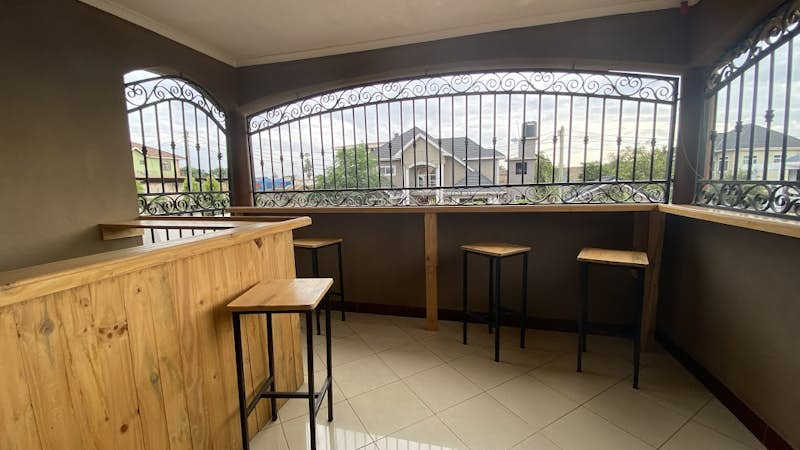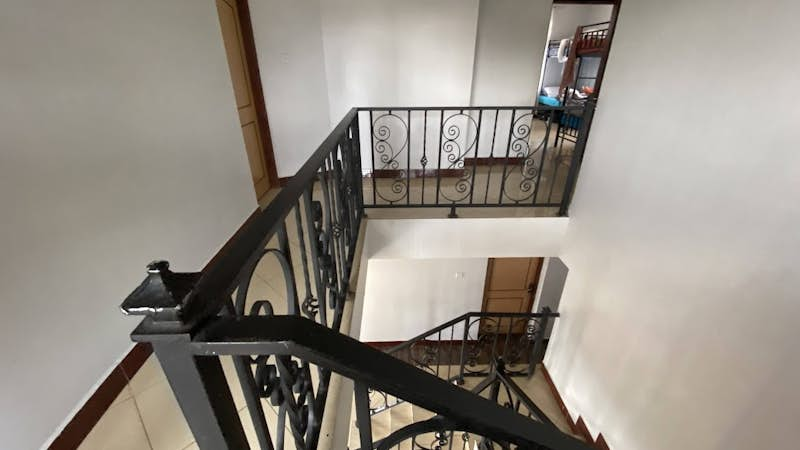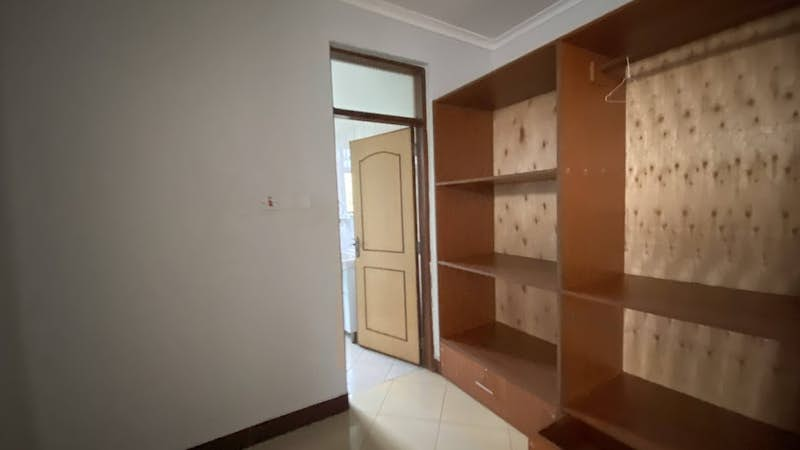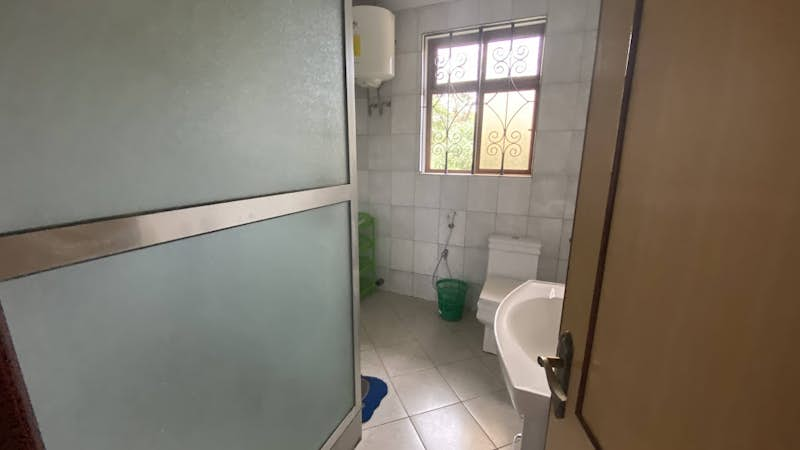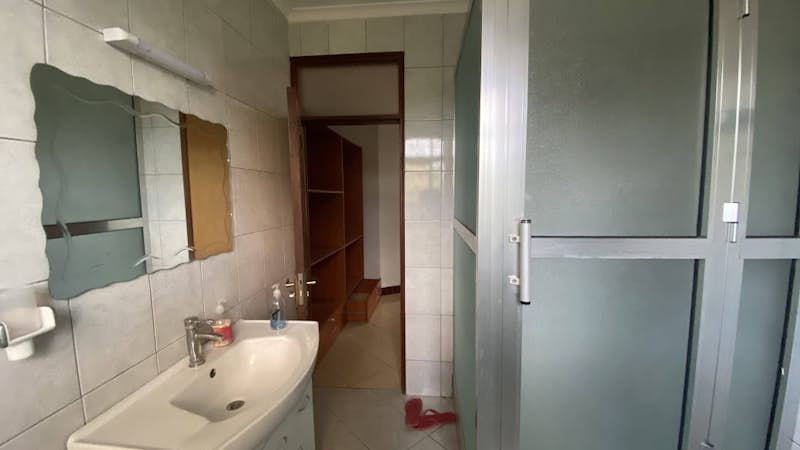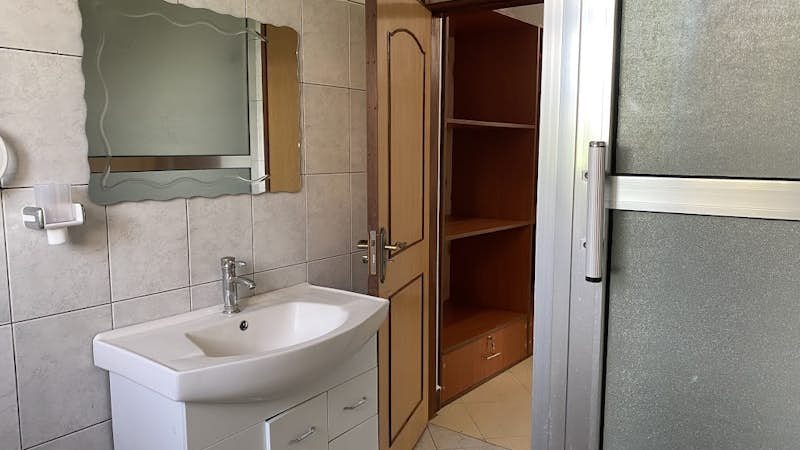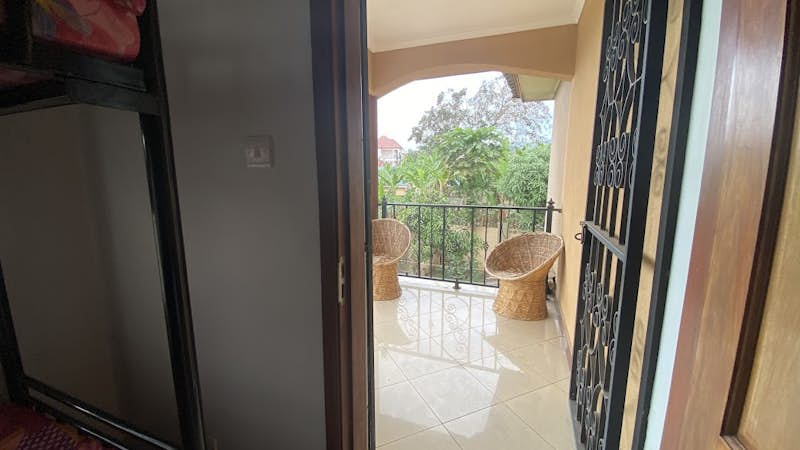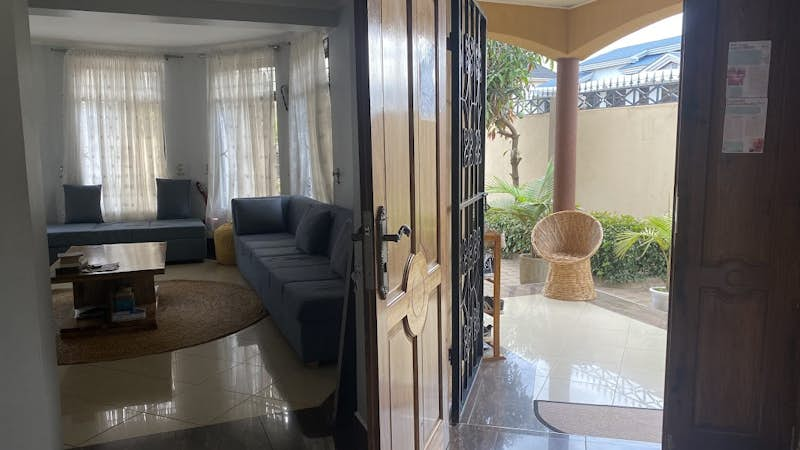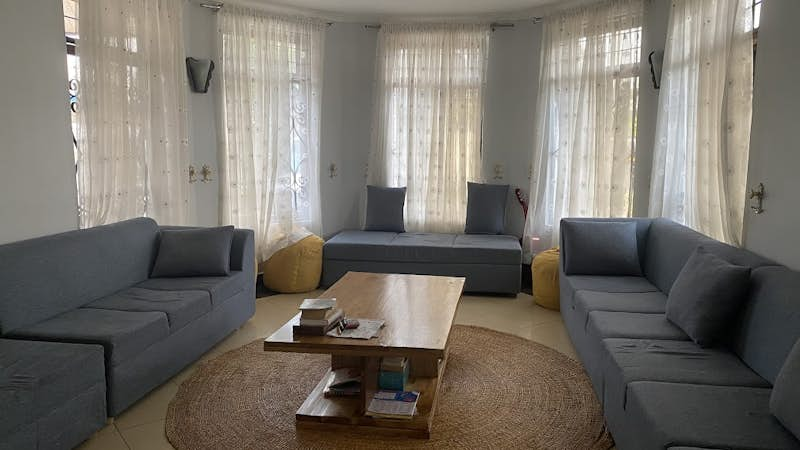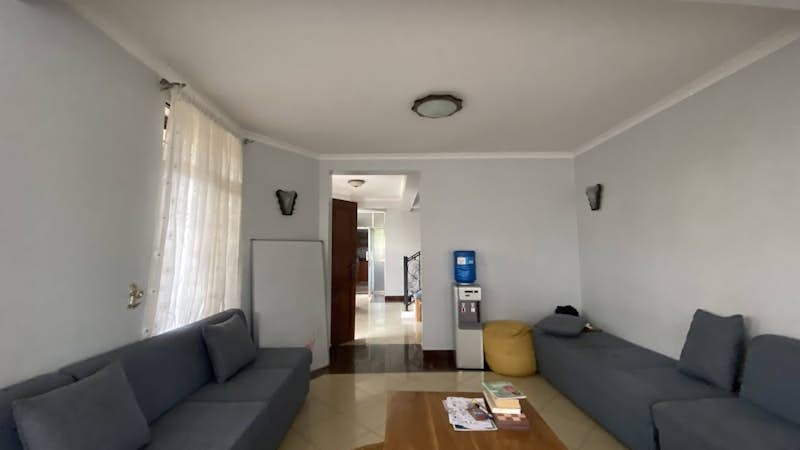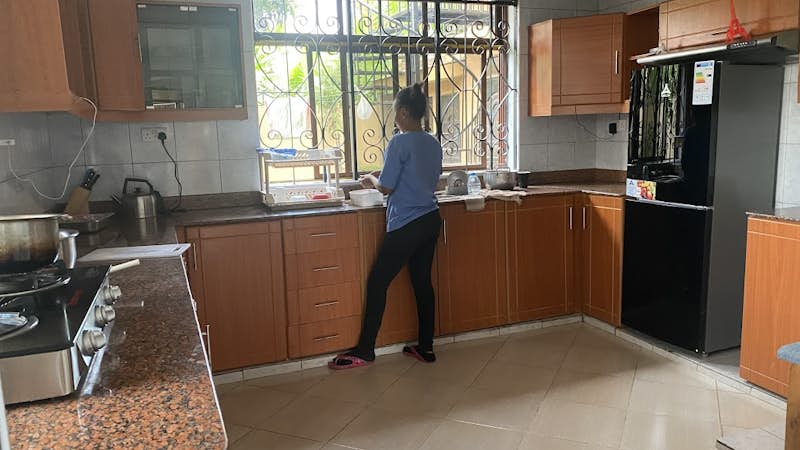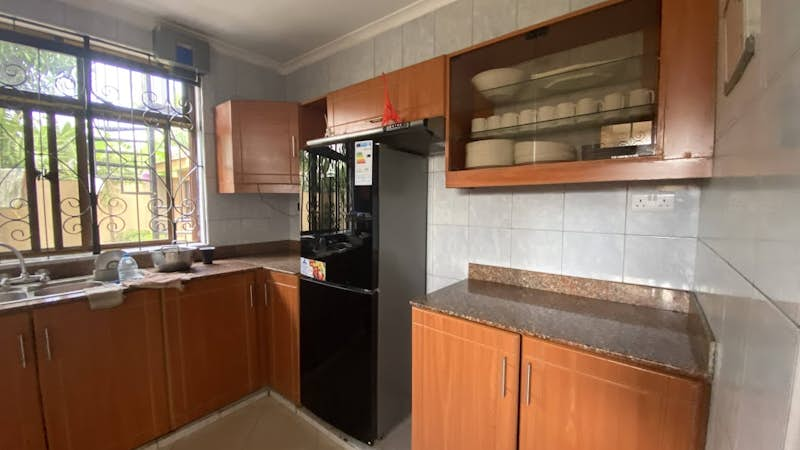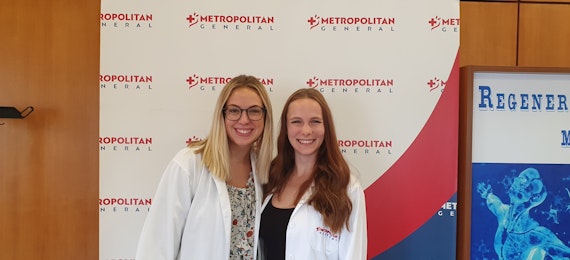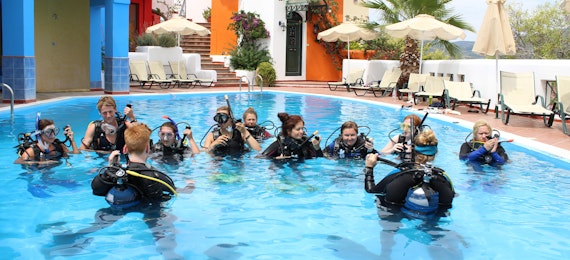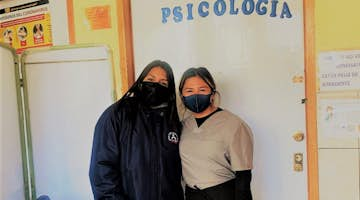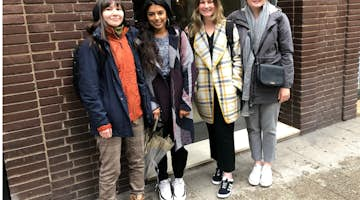
Psychology & Community Mental Health Internships: Intern abroad in Arusha, Tanzania
Develop unique understanding of mental health disorders on these Psychology internships in Tanzania, where demand for quality mental health treatment is high. Psychology interns assist professional therapists in outpatient mental health departments and rehabilitation centers, delivering vital services to patients and their families.
What to expect from your Psychology & Community Mental Health internship:
- Gain a first-hand understanding of assessment and treatment of a range of mental health disorders.
- Experience how the mental health system works in a new country.
- Make a vital difference to the lives of people in under-privileged communities.
- Enjoy spare time in Arusha, go on safari in the Serengeti, and explore world famous natural landscapes.
Your internship abroad host organization:
- Outpatient mental health clinics
- Rehabilitation centers
Internship details
Develop unique understanding of mental health disorders as a Psychology intern in Tanzania, where demand for quality mental health treatment is high. Interns assist professional therapists in outpatient mental health departments and rehabilitation centers, delivering vital services to patients and their families. Enhance your understanding of mental health symptoms, treatment and stigma by providing support to community members in their journeys to recovery.
This is an in-country internship, with accommodation and meals provided. Click here to view remote Psychology & Social Work internships, that you can undertake virtually from home.
Mental disorders are common all over the world, and are known to hamper socio-economic development and growth. Despite guidelines from WHO for mental health service frameworks, Tanzania still struggles with the successful treatment and rehabilitation of people who suffer from various mental health conditions and addiction. Limited access to quality mental health treatment can mean many individuals remain untreated for years. Traditional cultural beliefs in Tanzania can also differ from western approaches to mental health and wellbeing. Tanzanians may prefer to seek help via traditional healers, before turning to general practitioners and westernized psychology/psychiatry treatments.
Interns on a Psychology internship in Tanzania can assist in an outpatient mental health department, where patients from the community are received, assessed, diagnosed, and referred to various in-patient facilities, as well as a rehabilitation center, providing a haven for those suffering from depression, addiction and substance abuse. You’ll collaborate and observe mental healthcare professionals, providing guidance, treatment, exchanging ideas, contributing skills and providing compassionate mentorship, encouragement and hope to make a real difference to the lives of individuals.
Activities can include:
- Working alongside mental health clinicians and social workers
- Observing mental health assessments and treatments
- Assisting with counselling and psycho-educational sessions
- Helping to care for people who can’t access major hospitals
- Promoting mental health awareness
As an intern, you’ll gain a unique understanding by observing the effects of long term mental illness on the daily lives of underprivileged people, as well as the widespread impacts of mental illness on the local community. You’ll provide guidance and mentorship to those in crisis by leading life skills workshops, vocational training, evaluations and case discussions, awareness campaigns and community workshops. Play an active role in developing programs in a culturally relevant and meaningful way, enhancing the work already being done by the center, by contributing your own skills and ideas.
Interns who are at a pre-med undergraduate level of study will have scope to assist with a community mental health program, aimed at providing mental health support and avocation for all people. As part of the program, interns will attend patient assessments and sessions, undertake home visits, assist with data collection, visit rehab facilities and raise awareness through campaigns and community workshops, all under the guidance of a qualified member of staff.
It’s important for Psychology interns in Tanzania to be prepared to experience a healthcare system that is far different to what you’re used to at home. Health is often under-resourced and under-funded, and this can lead to elements of culture shock. Interns should remain professional and compassionate at all times. As perspectives of mental health can greatly differ within Tanzania, interns must prepare to encounter diverse cultural belief systems. It’s important to practice sensitivity and rely on professional local staff to act as mentors to learn and understand how to sensitively operate with the best interests of the patient in mind.
It is important to note that the internship placements grouped as “Medical” require interns to make a Ministry of Health contribution. This supports the operation of placements and covers supervision for interns on medical-related placements. This contribution is not included in the internship program fee; it must be made directly, in-country, under the direction and guidance of the Program Coordinator in Arusha. Interns will not be permitted to commence their placement until this has been covered. The amount of the Ministry of Health contribution varies, as it is not the same for every clinic/hospital. However, to cover the contribution sufficiently, we ask interns to budget up to US$75 per week.
In all cases, interns should expect that the first week of your experience will focus on settling in and gaining some introductory knowledge, as you will not “hit the ground running”. Rather, you should start with learning about the placement to gain an understanding of what you can build upon, develop, learn, and contribute. Ensure that you ask questions and provide feedback during the introductory period, so that your supervisor understands how you’re progressing. This will help them to better understand important details, such as how quickly you learn, what you find challenging, what you find interesting, etc.
Understand and expect that individual internship experiences vary, as the specific placement that you’re assigned will depend on review of your resume and your current level of studies and experience. Therefore, if you’re at a more introductory level, you should reasonably expect a more introductory internship. Likewise, if you’re interning for a shorter duration, you will have a different experience from someone who is interning for a longer duration. Placement preferences are considered but always subject to availability.
What are the career benefits of interning abroad as a Psychology & Community Mental Health Intern?
Psychology & Community Mental Health interns learn from a qualified and experienced supervisor, and can be involved in:
-
Shadowing and assisting professional therapists.
-
Observing mental health treatments and assessments.
-
Promoting mental health awareness to patients and their families.
-
Vocational and life skills training
-
Day-to-day facility support
-
Raising awareness of health practices and social issues
Professional development opportunities:
-
Understand the influence of cultural factors in providing mental health services.
-
Learn about specific symptoms and treatments for a range of mental health afflictions.
-
Gain understanding of managing patient relationships.
-
Develop communication skills within a professional working environment.
-
Gain practical skills and boost your employability, with guidance from Intern Abroad HQ’s Experiential Learning Curriculum to support your learning and cultural intelligence.
Are you eligible for this internship?
Submit a free application so we can confirm your eligibility and check availability for your preferred dates.
Not sure which program to join?
Tanzania photo gallery
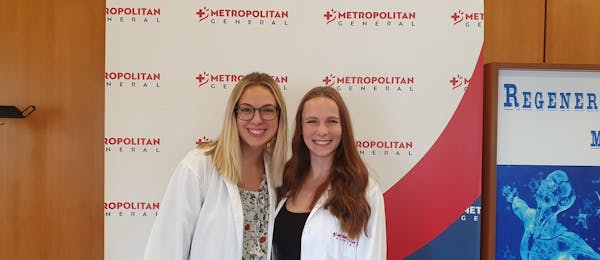
Academic credit available for all internships
Get course credit from your college or university while completing your internship abroad or a remote internship program. It's a great way to meet your academic requirements and gain valuable experience at the same time.
Learn about course creditProgram fees
Applying for our Psychology & Community Mental Health Internship is completely free! The support package covers the assistance we provide in finding your internship and arranging your living accommodations in your host country, ensuring you thrive during your program.
Please note that a deposit of US$499 is required to confirm your place. The remaining balance (minus your initial US$499 deposit) is due at least 60 days before your internship start date.
Duration |
Program Fee (USD) |
|---|---|
| 2 weeks | $1,439 Equivalent to $102 /day |
| 3 weeks | $1,579 Equivalent to $75 /day |
| 4 weeks | $1,769 Equivalent to $63 /day |
| 5 weeks | $1,909 Equivalent to $54 /day |
| 6 weeks | $2,049 Equivalent to $48 /day |
| 8 weeks | $2,344 Equivalent to $41 /day |
| 10 weeks | $2,624 Equivalent to $37 /day |
| 12 weeks | $2,914 Equivalent to $34 /day |
| 16 weeks | $3,624 Equivalent to $32 /day |
| 20 weeks | $4,249 Equivalent to $30 /day |
| 24 weeks | $4,849 Equivalent to $28 /day |
- Airport pick-up
- Airport drop-off
- Daily breakfast and dinner
- Accommodation
- 24/7 in-country support
- Program orientation
- Dedicated support before, during, and after your internship
- In-country guidance for social and tourist activities
- Sourcing and securing your internship placement
- Personalization of your internship plan
- Coaching from your supervisor
- Documented portfolio of your experiential learnings
- Academic credit facilitation
- International reference letter
- Certificate of Internship Completion
- Lunches and weekend meals
- All in-country transportation
- Visa (if required), flights, travel insurance (mandatory), vaccinations, criminal background check
- Personal spending money for snacks, drinks, public transport, laundry, and leisure activities during your free time.
Free-time experiences & tours in Arusha
Take your internship to the next level with Intern Abroad HQ's affordable activity and tour add-ons in Arusha! Explore your options below and learn how to book them once you've been accepted onto an internship program.

In this tour you will visit two of the most popular destinations in Tanzania - Kilimanjaro Region. The tour starts and ends at Arusha, with experienced driver guides offering the trip of a lifetime!

Enrich your time in Tanzania with a visit to gain an authentic insight into the Maasai way of life.

Visit three of the most popular destinations in Tanzania - Tarangire National Park, the Serengeti and Ngorongoro Crater. The tour starts and ends at Arusha, with experienced driver guides offering the trip of a lifetime!
Arrival and Orientation
Internships in Tanzania begin every Monday. Exceptions may be made to this when start dates are shifted to avoid public holiday disruptions or closed when the program has already reached capacity. The minimum duration requirement is 2 weeks up to a maximum duration of 24 weeks.
Airport pick up and accommodation are included in the Program Fee. The accommodation is covered from the Sunday night before the Monday start date - interns are required to arrive no later than the Sunday before their Monday start date, as all orientations are held on Mondays.
Typical ports of entry include the local Arusha Airport (ARK) or the Kilimanjaro International Airport (JRO). If you are planning to spend time independently in Tanzania prior to your internship and will not require an airport pick up, we can discuss alternative arrival logistics with you.
Upon arrival, interns will be met, greeted, and transferred to the accommodation.
The last night of the accommodation is the Friday night of the final week, leaving interns free to depart on Saturday. Return transport to the airport will be provided to interns at no cost, provided they’re making their way back to the airport on either the Saturday or Sunday of their final week.
Extra nights of accommodation can be arranged in advance, if requested, and are subject to availability.
Orientation covers important details for your internship, including introductions, information about culture, customs, rules, expectations, safety, language lessons, cultural excursions, and more. Your specific internship placement orientation will follow the general orientation, as you’ll be shown how to travel to and from your internship and be introduced to the team you’ll be joining.
Please note that all participants are advised not to book flights until they have first registered to confirm their internship placement.
Check what's required to visit Tanzania
Check out the widget below to learn about the visa requirements for the Psychology & Community Mental Health internship in Tanzania, based on your country of residence.
Accommodation and WiFi
Interns in Arusha are accommodated together in hostels owned and operated by our in-country local team. These are located in quiet and friendly neighborhoods (usually just a 15 to 20 minute ride from the town center and placements).
Living is safe, clean, modern and comfortable, including 24/7 gated security and housekeeping staff. Laundry services are not included but can be arranged directly for a small fee. Amenities include shared bathrooms areas, WiFi and communal living spaces - lounge, dining, courtyard, kitchen, bathrooms etc.
Interns can expect to share a bedroom with 4-8 other guests. Genders may be mixed depending on capacity. Private/en-suite room upgrades are subject to availability and must be arranged directly with the local team, once registered.
Please note that the accommodation pictured in the photo gallery of this webpage is provided as an example. Since we may work with more than one apartment (depending on capacity), the exact accommodation that you’re assigned may differ slightly from the photos. Rooms sizes, along with storage space, may also vary.
Meals
Internships in Arusha include breakfast and dinner, prepared and served Monday to Friday (at the accommodation). For breakfast you can anticipate fresh fruit, tea, coffee, eggs, toast and various spreads (peanut butter, jam etc). The dinner menu is usually set according to a weekly rotating schedule. You can anticipate simple local dishes like chicken with rice and vegetables, potatoes, beans, salads, samosas, curry and fresh fruit for dessert. A filtered cold water dispenser is available in the common area for use to reduce the amount of plastic bottle use.
It is important to note that the provided meals will not reflect what you are used to eating at home and flexibility is required. Interns are encouraged to budget extra spending money for any special snacks/treats to supplement their usual eating habits. Please be sure to let us know of any specific dietary requirements that you have in advance (i.e. allergies and intolerances), so that we may ensure your hosts are aware and make recommendations to you accordingly.
Essential country information
| Capital | Dodoma |
| Population | 47.78 million |
| Languages | Swahili and English |
| Currency | Tanzanian Shilling (TZS) |
| Time zone | UTC+03:00 |
Weather and climate:
In Arusha, where the Tanzania internship programs are based, the warm season typically lasts from January till late March. During this period, the average daily high is around 81°F / 27°C. The cooler season is from mid May till late August and the coldest month of the year is usually in July, when the low reaches around 56°F / 13°C. The dry season is considered to run from late May through till mid November. Rainfall can occur during the rest of the year, December through April.
What recent Psychology & Community Mental Health interns said about their experience
I enjoyed understanding a new culture and being pushed out of my comfort zone.
Interning with Intern abroad HQ has been one of the highlights of my life thus far. I felt well prepared before traveling to the country of my placement, Tanzania, thanks to the staff that was readily available to answer any questions or provide support. The placement itself was absolutely incredible. I never felt unsafe or unsupported throughout the duration of my experience. The local team was kind, humorous, and genuinely really good people, whom I will remain thankful for in years to come. I can not recommend this experience with Intern Abroad HQ enough, as I have gained invaluable hands-on experience, had immense personal growth, and made friendships that will last a lifetime.
Intern life in Tanzania was an adventure! I feel so much more empowered to intentionally seek new information and experiences. My internship tasks included observing clinicians, attending regular morning meetings to discuss the clinic's progress, and assisting with patient diagnosis and prescription in the mental health clinic. The language barrier I experienced forced me to focus more on how a patient spoke and their body language. This will greatly benefit my future career as a potential clinical psychologist, as it is a career which requires one to be good at reading people and knowing when to encourage individuals to open up. Getting to witness the different psychological cases in the diagnosis room was one of my most memorable experiences.
I really enjoyed getting involved in African culture and meeting so many people through the clinics I was involved with. My favorite memory of the program was attending the different clinics which included special needs, antenatal and sober houses. It was a brilliant experience being able to talk to people in the clinics, ask questions regarding their condition's and hear about their experiences. I feel more empowered in my field as I now have a lot more motivation to continue doing the work I was doing in Africa, and bring it to where I am living now. I would like to keep progressing in Psychology!
To read all reviews, visit our reviews page.
